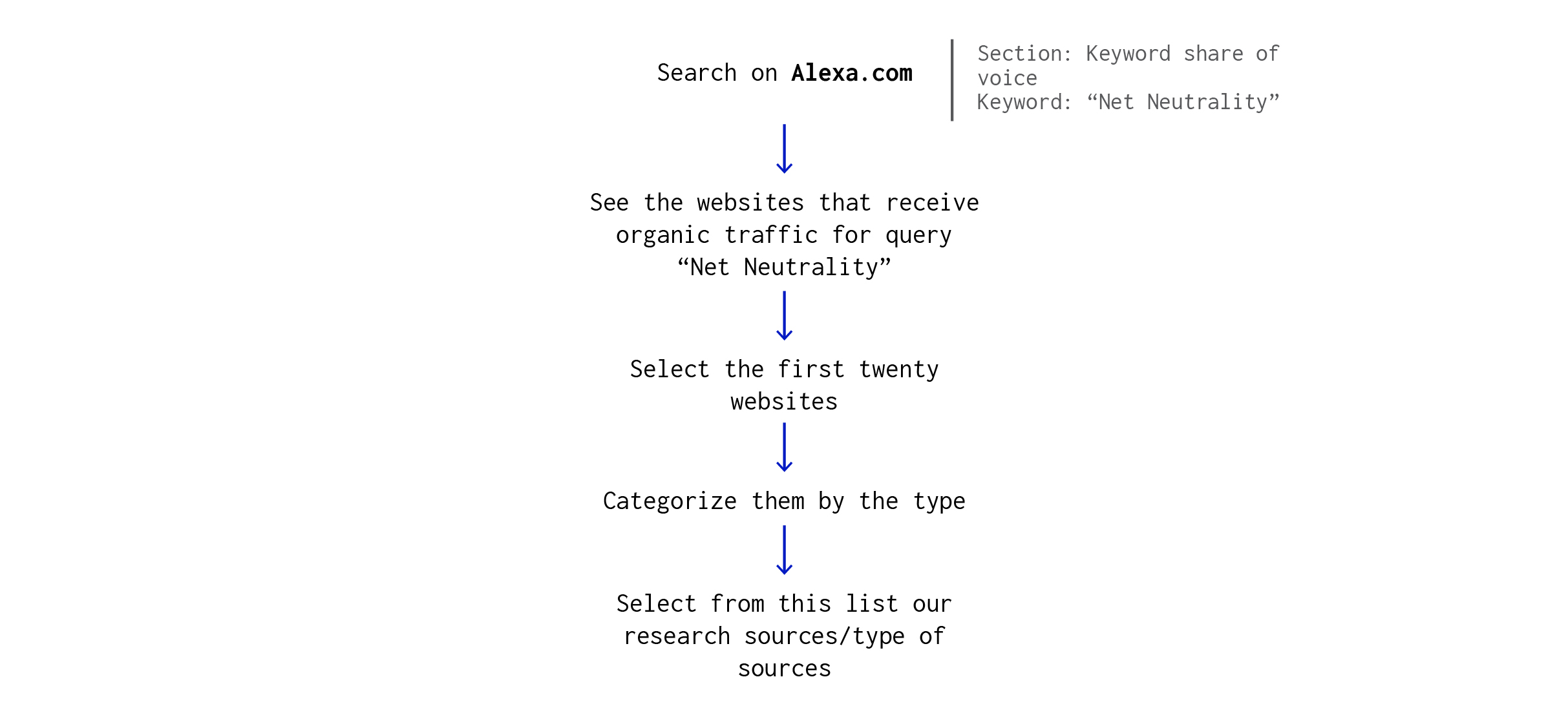Description
In this visualization, you can see the first twenty websites by organic traffic related to the word “Net Neutrality”. We decided to make this protocol, identified with Zero, to justify the sources we used for the whole analysis. This list reports the name of the main websites used by people searching information about Net Neutrality. Wikipedia is the first one. We used Wikipedia as a source for the first part of our project, in protocol number one and two. Savetheinternet.com and battleforthenet.com come after Wikipedia in the list. These websites are curated by a United States advocacy group called Free Press, who fights to save the free and open Internet. From battleforthenet.com we selected the list of supporters we analyse in the protocol number seven and eight. From this list, we also get the news provider and the newspaper categories. They mention Net Neutrality in their articles, so we considered these groups to speak about the events and actors related to the topic. We analyse the information in protocols number three, four, five and six. The last advice given by this list is Twitter. As a discussed topic, Net Neutrality is present on Twitter more than on other social networks. We treat Twitter during protocol number eight.
Protocol

First, we asked ourselves how we can select the sources we would have used. To answer our main question, “Who takes care of Net Neutrality?” we had to understand where people interested search for Net Neutrality. In this protocol, we tried to identify the sources we will use during the whole research. We were looking for a method indicating the main websites people use, when they search information related to our topic. We based this research on the Share Of Voice by Alexa. In the section Share Of Voice we put the keyword “Net Neutrality” to find out the organic traffic related to our topic. We classified the first twenty websites by type. Starting from this list, we selected specific websites and a type of websites, where only the most representative of the type appear in the list. In the last case, after this first selection, we found another method to select the main websites for each type. From this simple research, we had an overview about our topic research background. Every time we looked for Net Neutrality in Internet, we found different kinds of websites. Most of them try to explain what Net Neutrality is. A very big quantity of contents related to Net Neutrality is meant to clarify the topic. During this research, we understood that there are a lot of people that do not know what Net Neutrality is. Indeed, a large quantity of links related to the topic are dedicated to explaining and describing the phenomena. On the contrary, there are a lot of websites fighting for the Neutrality. These websites are created by groups of people really involved. They are trying to defend the Neutrality organizing campaigns or protests. So, until now, not all the people know the phenomena, but the minority, who is informed, is really involved and is trying to do something.
Data
Timestamp: 28/10/2017
Data source: Alexa
Download data (40KB)
The results of the Alexa Share Of Voice could change during the time. We took the results at the beginning and at the end of our project to confirm the order of Organic Traffic related to our topic.